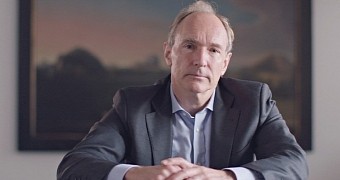Tim Berners-Lee, the man we have to thank for inventing the World Wide Web, believes there are several things that need to be done to ensure the future of the web in order to make this a platform that benefits humanity - fight against fake news, political advertisements and data sovereignty.
As the World Wide Web turns 28, Berners-Lee celebrates the occasion. He writes that over the past year he has become increasingly worried about three trends that he believes harm the web. The first thing the world needs to fight against is fake news.
"Today, most people find news and information on the web through just a handful of social media sites and search engines. These sites make more money when we click on the links they show us. And, they choose what to show us based on algorithms which learn from our personal data that they are constantly harvesting," Berners-Lee writes. "The net result is that these sites show us content they think we’ll click on – meaning that misinformation, or ‘fake news’, which is surprising, shocking, or designed to appeal to our biases can spread like wildfire. And through the use of data science and armies of bots, those with bad intentions can game the system to spread misinformation for financial or political gain."
He takes things a step forward and gives names. He believes that we must push back against misinformation by encouraging gatekeepers such as Google and Facebook to continue their efforts to combat the problem, while also avoiding the creation of any central bodies that decide what's true or not because that's another problem altogether.
It's not just fake-news to fight against
Another thing we need to fight against is government over-reach in surveillance laws, including in court, if need be. "We need more algorithmic transparency to understand how important decisions that affect our lives are being made, and perhaps a set of common principles to be followed," he adds.
Political advertising online needs to be more transparent, he believes, especially considering that during the 2016 US elections as many as 50,000 variations of adverts were being served every single day on Facebook.
There are many problems plaguing the world wide web, but some are more pressing than others, it seems. TheWeb Foundation, which Berners-Lee leads, will be working on many of these issues as part of the new five-year strategy.
"I may have invented the web, but all of you have helped to create what it is today. All the blogs, posts, tweets, photos, videos, applications, web pages and more represent the contributions of millions of you around the world building our online community. [...] It has taken all of us to build the web we have, and now it is up to all of us to build the web we want – for everyone," Tim Berners-Lee concludes.

 14 DAY TRIAL //
14 DAY TRIAL //